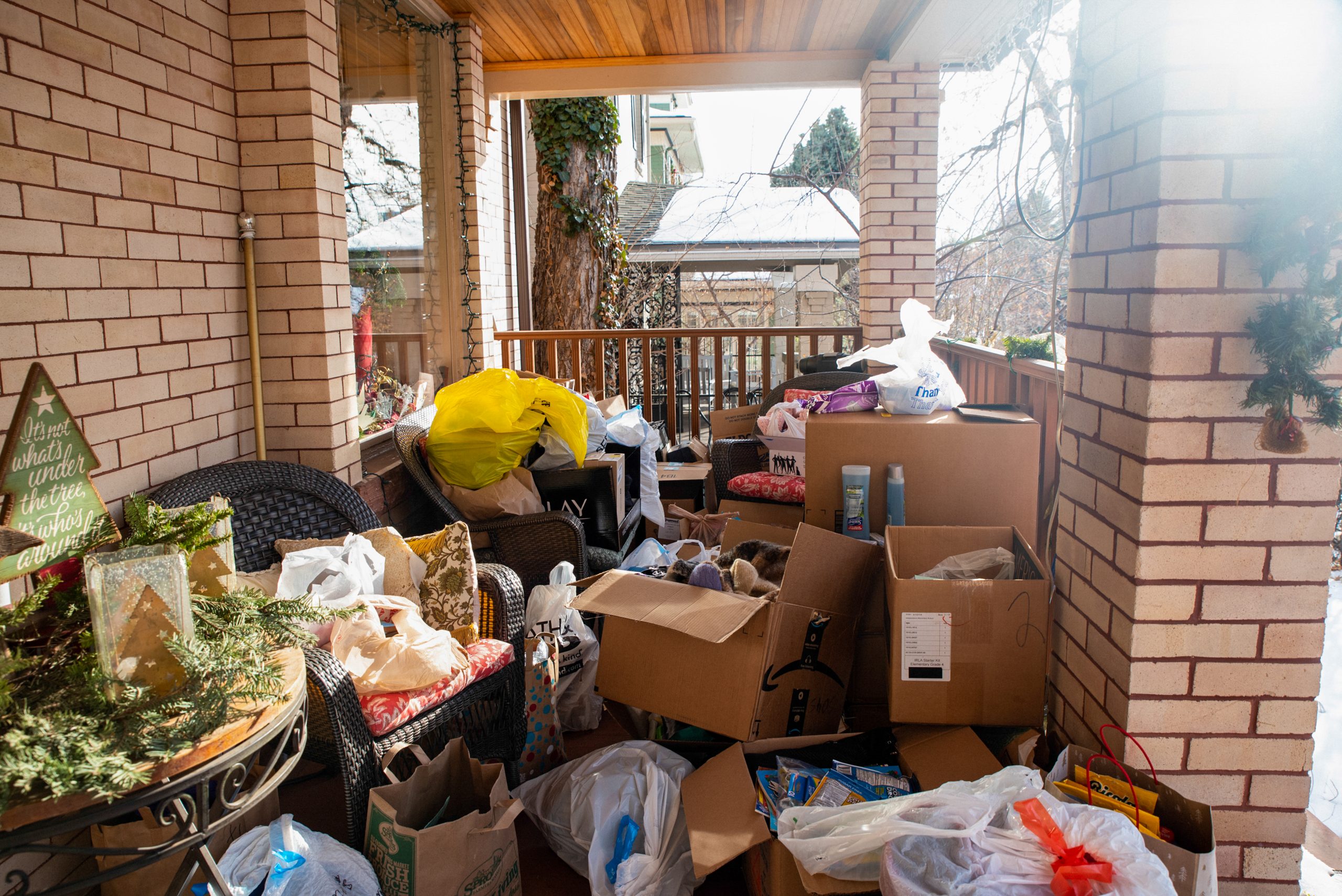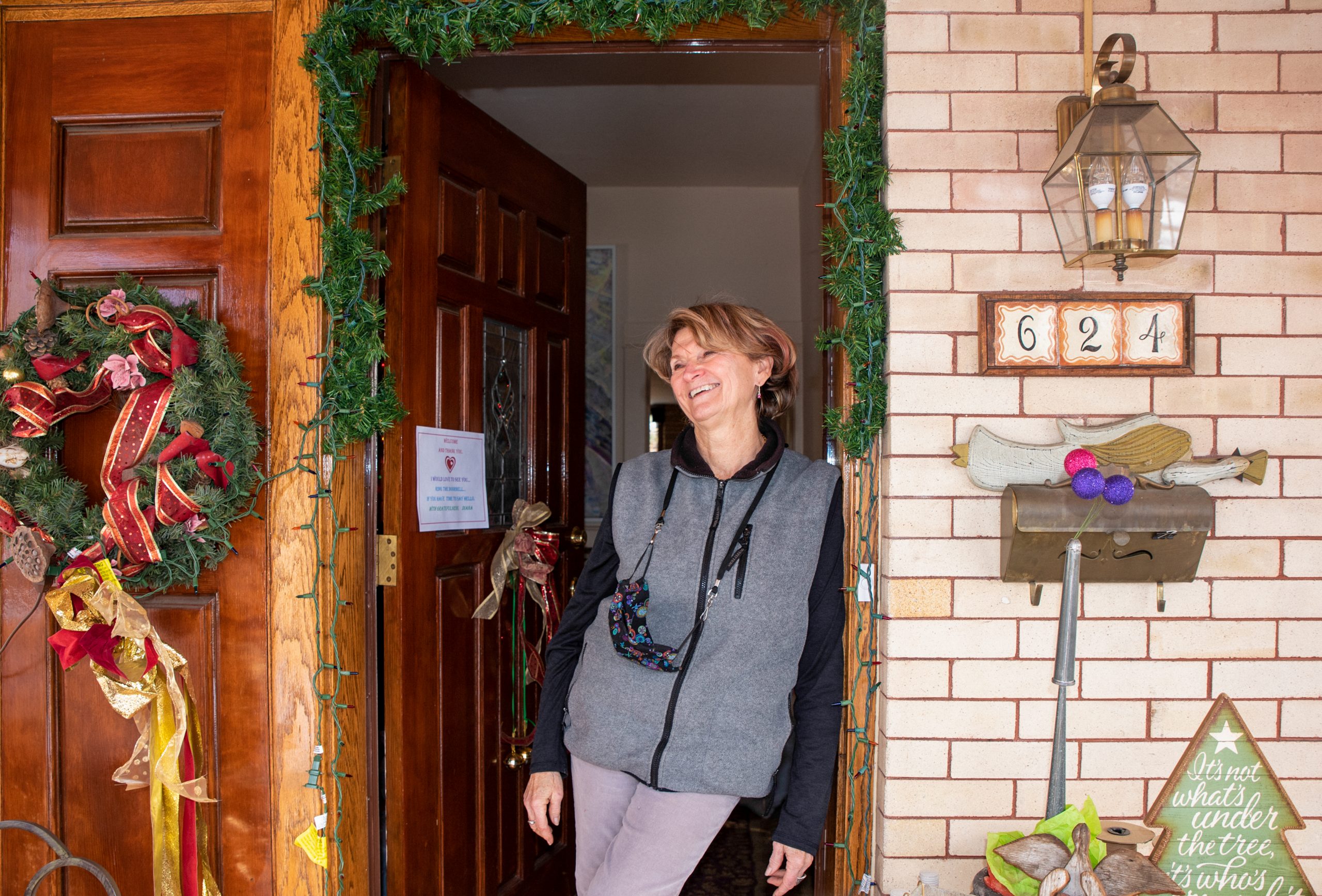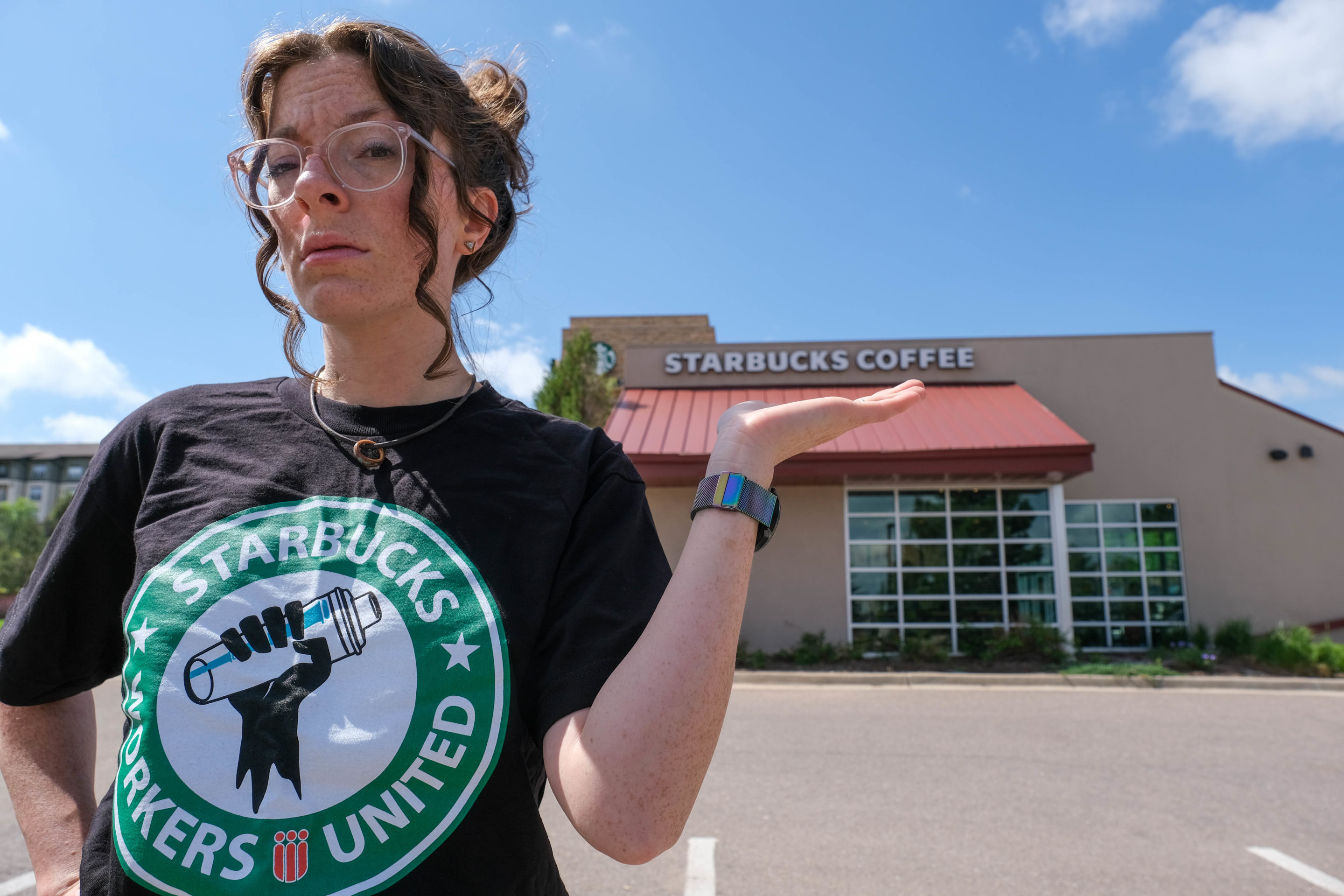//Volunteer Karen Waelke and Captiol Hill United Ministries Director Diana Flahive look at the donated coloring books and colored pencils on Flahive’s porch on Dec. 17. Photos by Madeleine Kelly | [email protected]
The twinkle of the lights will burn out, the décor will come down and the snow will melt away.
But, for many Coloradans, the feelings of anxiety, despair and depression making up the holiday blues will linger long after the new year.
Before COVID-19 upended lives, Colorado was already in a state of crisis according to a new report by Mental Health America. Through research and analysis, the non-partisan, nonprofit organization found 46 other states fare better than Colorado when it comes to rates of mental illness and access to care.
The pandemic only exacerbated our state’s mental health situation. For some, feelings of isolation increased due to separation from family and friends. For others, an even greater obstacle: the loss of a permanent home to call their own due to COVID-19-related financial hardship.
“I’m working with teachers and with medical staff who are on the street. These are people who have had really hard things happen to them and it’s not their fault,” said Diana Flahive, the director of Capitol Hill United Ministries, who is spearheading the Women’s Homelessness Initiative.
WHI is a consortium of churches working to give sanctuary and hospitality to women. Over the past few years, women have filled more than 9,000 cots with the help of participating agencies, who would otherwise be on the streets. However, when COVID-19 hit, many of the churches were forced to downsize from housing hundreds of women each night to only a couple of dozen, all in an effort to reduce the risk and spread of the virus.
Even at full capacity, WHI isn’t able to help all of those in need. According to the Metro Denver Homeless Initiative, from July 2019 to June of this year more than 31,000 people experienced houselessness in the city. That number is likely to increase as the economic impact of COVID-19 expands, eviction protections expire, and unemployment numbers soar.
Since the pandemic hit, Flahive and area volunteers including Karen Waelke have been working to calm Coloradans’ cries for help.
“The current crisis in Denver is very sad and I can’t imagine how daunting, uncomfortable and scary it is for those experiencing it,” Waelke said.

Flahive has turned her porch into a donation drop-off site. Waelke has called on a Central Park Facebook group made up of moms to donate items for 150 women housed in a Denver hotel. The majority of the women lost jobs and then their housing as a result of COVID-19.
The appeal includes basic essentials like water, clothing and toiletries. And this year, a new and uncommon request: colored pencils and adult coloring books used to reduce stress and anxiety in the absence of access to mental health care.
“I wanted to do something special. A lot of things that we get are used. So, I wanted to bring some joy to the women this year by giving them brand new colored pencils, coloring books and pencil sharpeners,” Flahive said.
According to the Cleveland Clinic, adult coloring books featuring mandalas, animals and floral designs can help to relax the brain. However, vibrant pictures are only a band-aid to a larger problem facing a state in desperate need of systemic changes.
“We don’t have a community that prioritizes any of the kinds of things that yield healthy populations,” said Vincent Atchity, CEO and president of Mental Health Colorado. “We have a grave shortage of affordable housing. We invest very, very poorly in public education. We’ve got a significant portion of the population eligible for Medicaid, what we pay in minimum wage is scandalous and not at all what can support any kind of quality of life.”
With 300 days of sunshine each year and vast outdoor options, Colorado has become a destination for people to relocate to during the pandemic for mental healing, making Colorado’s current state of mental health that much more puzzling. But, Atchity believes it’s the people we don’t see outside that concerns him, the people working many jobs to make ends meet. And that’s why he’s advocating for something more to service the needs of Coloradans.
“We need to put pressure on healthcare systems to make that kind of care available because the alternative drives public costs through increased rates of houselessness, over-reliance on emergency department access and increased reliance upon jails and prisons to manage people with unmet health needs. All of which are costs to taxpayers, which yield very poor outcomes for people’s health,” Atchity said.
Some progress has been made by Colorado after passing laws advancing the cause of parity, which ensures health insurers cover mental health needs the same way physical health needs are covered, but the effects of the legislation will take time to develop. The Colorado Health Institute reports that despite a series of laws requiring parity between behavioral health and physical health coverage, more than two million insured Coloradans still do not have guaranteed access to covered behavioral health services, including treatment for substance use disorder.
“If we can make all humans thrive and prosper, our economy will boom even more dramatically than it is now. Until we live in a community that prioritizes human health and human life as what we’re here to do on this planet, we’re failing,” Atchity said.





0 Comments